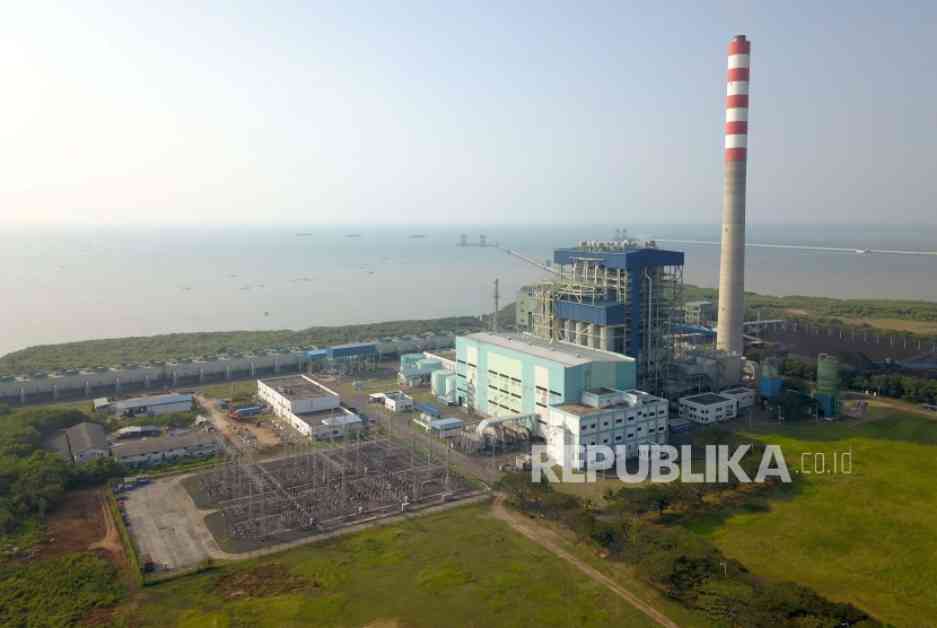A recent analysis by the Centre for Research on Energy and Clean Air (CREA) has shed light on the early retirement plan of coal-fired power plants in Indonesia. The closure of the Cirebon-1 and Pelabuhan Ratu coal power plants in West Java is not only expected to prevent an economic burden of $8.1 billion USD but also save around 11,400 lives linked to air pollution. The economic benefits could be even greater if the closures are accompanied by a transition to renewable energy sources.
In the analysis of Cirebon-1, the First Coal Transition Initiative to Renewable Energy in Indonesia, CREA revealed that by shutting down the Cirebon-1 power plant, Indonesia could avoid the impacts of air pollution, preventing an economic burden of Rp 67 trillion and nearly 6,400 deaths between 2036 and 2042. Similarly, closing the Pelabuhan Ratu power plant could help avoid an economic burden of Rp 57 trillion and over 5,400 deaths between 2038 and 2043. These findings were shared by CREA in a statement on Tuesday, March 3, 2025.
The recent announcement by the Minister of Energy and Mineral Resources, Bahlil Lahadalia, regarding the early retirement of the 660-megawatt Cirebon-1 coal power plant in West Java has marked a significant step towards a cleaner energy future. The plant is set to be decommissioned by 2035, seven years earlier than initially planned for 2042, and will be entirely replaced by a combination of renewable energy systems—solar (700 MW and 346 MW of low power), wind (1,000 MW), and waste-to-energy (12 MW).
On the other hand, the Pelabuhan Ratu power plant, a pilot project under the Just Energy Transition Partnership (JETP), is scheduled for early retirement in 2037. Katherine Hasan, an analyst at CREA, emphasized the importance of Indonesia’s recent plan to accelerate the closure of Cirebon-1 and fully replace the supply with renewable energy, stating that it is a crucial step in strengthening the country’s energy transition commitment.
Ensuring timely and strategic implementation of prospective renewable energy projects in West Java, the province with the highest population in Indonesia, will help the region surpass its mapped renewable energy capacity targets. According to CREA’s analysis, the actual economic benefits of early retirement of the Cirebon-1 and Pelabuhan Ratu power plants will far exceed the $1.13 billion USD funding allocated for early retirement, as outlined in the JETP.
The transition to renewable energy is essential to capitalize on these economic benefits, as highlighted in the economic model developed by the Center of Economic and Law Studies (CELIOS). The early retirement of the Cirebon-1 power plant aligns with the energy transition ambitions outlined in the Regional Energy Plan of West Java. While the current renewable energy capacity in West Java stands at 3.7 gigawatts (GW), prospective renewable energy projects totaling 4.6 GW have been mapped across the province, with solar and hydropower projects leading in prospective total capacity.
By ensuring the smooth implementation of solar and hydropower projects and pushing for the mapping of wind, geothermal, and bioenergy power plant projects, West Java could surpass the 6.8 GW target set for 2030. The development of renewable energy will secure the necessary investments to support fair economic growth in the region, playing a crucial role in accelerating progress in other provinces beyond West Java.
Katherine’s insights highlight the importance of transitioning to renewable energy sources not only for environmental benefits but also for economic growth and sustainable development. The shift towards cleaner energy alternatives is not just a choice for the future—it is a necessity for our present well-being and prosperity.














